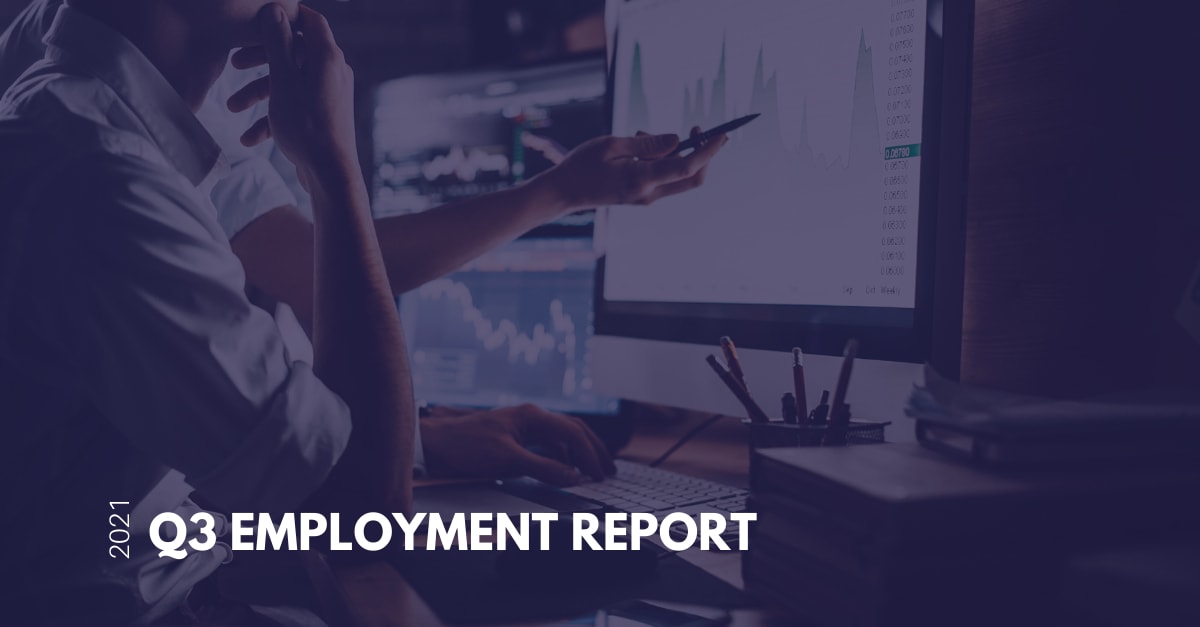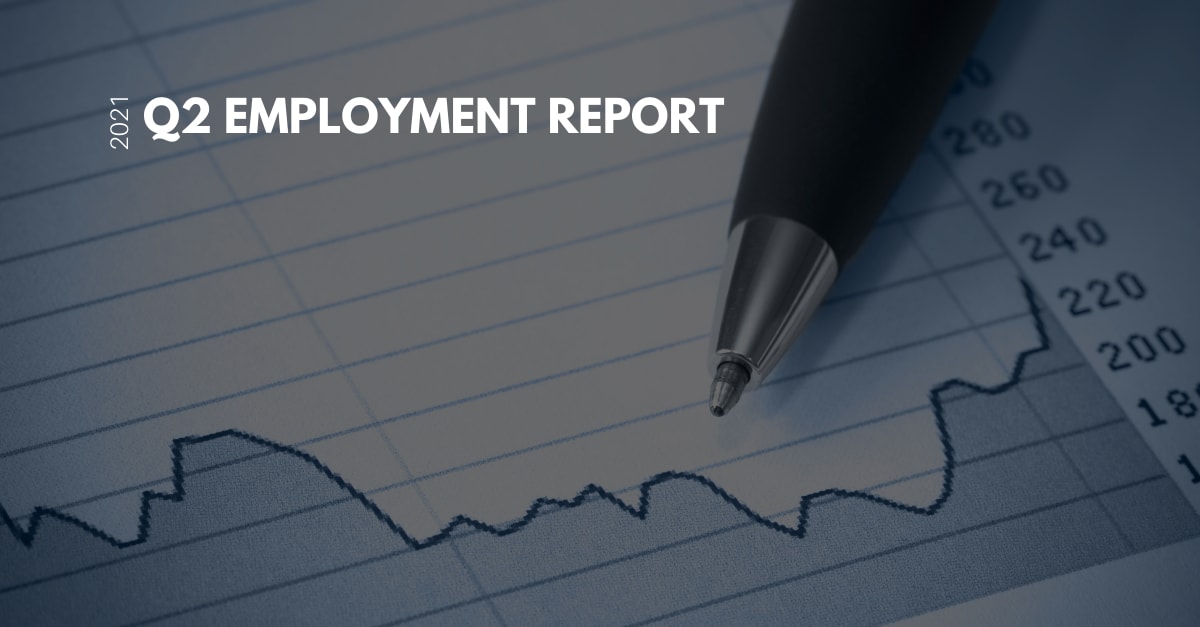The Big Picture
Both the S&P 500 and the Dow closed in early April at all-time highs. It was the market’s first reaction to the latest jobs report, which showed employers adding 916,000 jobs in March — the largest increase since August. The accelerating pace of hiring is leading forecasters to predict a strong economic recovery in Q2 and Q3 of 2021 that could run through 2022.
Other economic data released this month showed service sector making significant gains by surging to all-time highs in March, after months of COVID-19 driven shutdowns, stay-at-home orders and consumer caution. The Institute for Supply Management’s services index rose to 63.7 in March from 55.3 in February — far ahead of economists’ forecasts of a 59 reading. Anything above 50 points to expansion. These and other improving economic forecasts have led many analysts to raise estimates for companies’ Q1 earnings results.

Credit: ISM Report on Business
While lingering concerns about new variants of COVID and continued outbreaks persist, the faster than expected rollout of new vaccines (more than 3 million per day) and the encouraging news about continued declines in the number of new COVID cases have provided a counterweight.
GDP Forecast (3 month moving average)

Credit: ITR Economics
As have many economists we follow, the forecasters at ITR Economics maintained their outlook for ongoing economic recovery through 2021 and an extended rise in 2022 and 2023. ITR is projecting the following US Real GDP Q4-to-Q4 changes through 2023:
- 2021: +1.3%
- 2022: +2.5%
- 2023: +2.0%
Employment for Accounting and Finance Professionals
The economy added jobs faster than expected in March, leading to forecasts of rapid employment growth in the coming months as vaccinations increase and jobs across industries return.
Additionally, January and February had big revisions as reports were updated for January to 233,000 jobs from the 166,000 as previously reported, and February’s job growth was revised to 468,000 from the 379,000 reported. It’s clear the reopening of the economy is happening faster than most expected. Overall, the U.S. economy remained about 8.4 million jobs short of its February 2020 levels as of March 2021.
Professional and Business Services added 66,000 jobs in March 2021

Growth in service sector was the single biggest contributor to monthly job gains. Leisure and hospitality along with education made big gains in recovering lost jobs in March, reflecting easing social distancing restrictions and increased capacity limits at bars, restaurants and other establishments. Leisure and hospitality payrolls rose by 280,000 in March after an upward revision of 384,000 in February. These industries represent the hardest-hit industry category tracked by the U.S. Bureau of Labor Statistics.
Within the private service sector, education and health services positions rose by 101,000 to nearly double their February gain and professional and business service jobs posted a third consecutive monthly increase, with jobs increasing by 66,000.
National Unemployment Rate: 6%

Credit: U.S. Bureau of Labor Statistics
The unemployment rate dropped to 6% in March 2021. This is a dramatic decrease from April 2020 and is 2.5 percentage points higher than the 50-year low 3.5% unemployment rate we saw just prior to the pandemic in February 2020. The Federal Open Market Committee suggests that unemployment will return to those 50-year lows of 3.5% by the end of 2023.
The rate of unemployment for professionals with a Bachelor’s degree or higher is an important marker since most Accounting and Finance professionals fall into this category. In March 2021, the unemployment rate continued the downward trend, falling to 3.7%. This is significantly lower than the 4-6% rate of unemployment that many economists believe constitutes full employment, and explains the difficulty employers are having recruiting these professionals.
Century Group’s Forecast
For Employers
- New Realities: Competition for top accounting and financial talent is fierce. Employers need to expect a tight talent market for the foreseeable future and adjust their hiring criteria. According to the Bureau of Labor Statistics, the outlook for job growth in the Accounting and Audit field is 11% growth through 2026. In the current market, job openings outnumber job seekers in accounting and finance. Consider narrowing your requirements to the most critical.
- Rising Compensation: Expect competition and compensation for accounting and finance professionals to increase as demand for these professionals increases, the baby boomer generation retires, labor force participation shrinks and fewer accounting and finance degrees are conferred.
- Get Flexible: CPA firms have been at the forefront of flexible work arrangements and work/life balance. Traditionally known for long hours, weekends and extensive travel, many have transformed their cultures to offer flexible arrangements as a means of attracting and retaining critical accounting and audit professionals.
- Think Remote: Recent surveys have shown that up to 34% of professionals indicate they won’t return to work in an office if their company requires it. Accounting is a profession that lends itself to successful remote work. A recent McKinsey study, “What’s Next for Remote Work,” analyzed 800 jobs and 2,000 tasks and concluded that Finance, Professional Services and Information sectors have the highest potential for remote work.
- Streamlined Hiring: When you find someone that meets your criteria, don’t wait. In the current professional labor market, speed is critical in making hiring decisions. Top candidates generally receive multiple offers and perceive long hiring processes as outdated.
- Flexible Staffing: Many employers utilize temporary and interim professionals to manage skill gaps on their own teams, complete key projects and handle peak periods (month-end, annual audits, M&A integrations, etc.). Others utilize interim consultants to keep their day-to-day operations going while they conduct a search for a full-time employee.
Have a hiring need? Contact our team today for temporary or direct hire roles.
For Job Seekers
- Know Your Value: Before you launch your job search, you should have a clear picture of your market value. Accounting jobs are one of the fastest growing occupations, with the BLS forecasting a 4% growth in demand from 2019-2019. In that period, an estimated 61,700 jobs should open up. There are many resources available to help you determine your value, including Century Group’s 2021 Salary Guide for Accounting and Finance Professions.
- Get Your CPA or MBA: The world of business is getting more (not less) complex and the demand for accounting and finance professionals with advance credentials and experience is accelerating. Individuals that earn these designations place themselves at the forefront of the profession and are in high demand.
- Expand Your Network: Don’t limit yourself to easily found opportunities. Consider joining a professional association to expand your professional network. And take a call from an Executive Recruiter. Recruiters build networks and can provide you access to leading companies and opportunities that you may never learn of on your own.
- Take a Gig: Join the “gig” economy by taking on a temporary or interim assignment to gain entry to a new industry, increase your market value, develop new skills or gain more experience.
Submit your resume to be considered for one of our latest accounting and finance jobs in your area!






 -Source: U.S. Bureau of Labor Statistics
-Source: U.S. Bureau of Labor Statistics




 Credit: U.S. Bureau of Labor Statistics
Credit: U.S. Bureau of Labor Statistics








